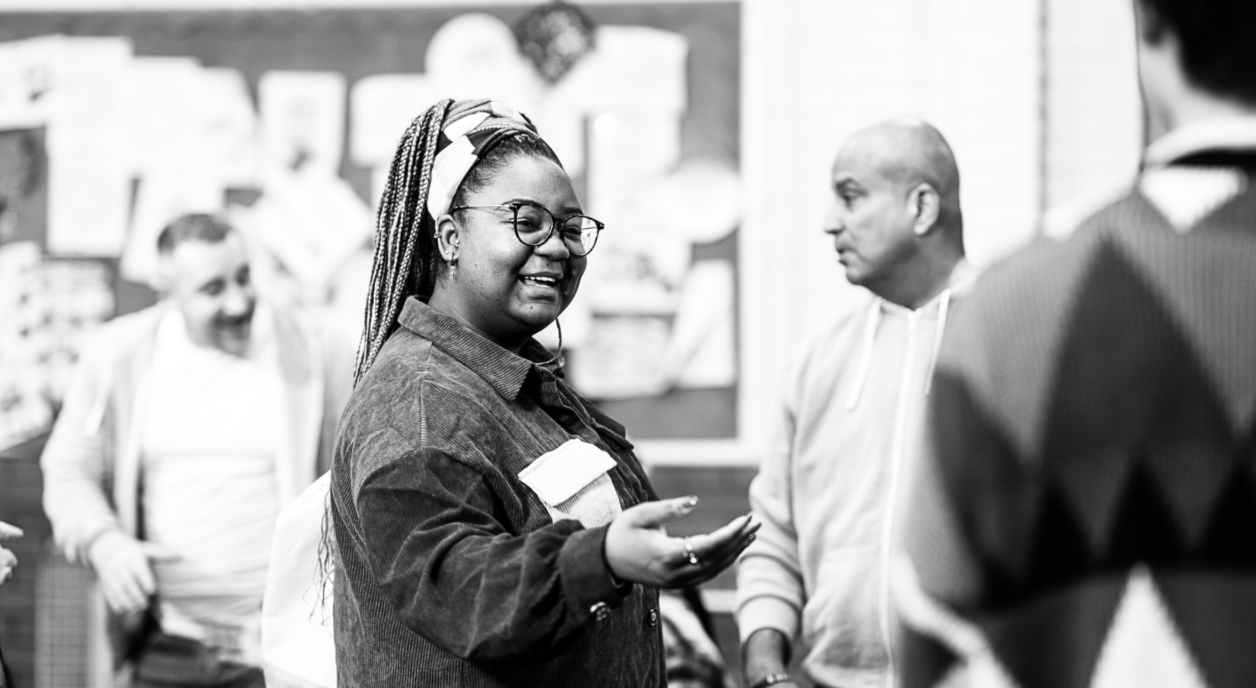Authentic communication: the key to meaningful connection and engagement

There are four big things that can hamper success in any organization, team, or relationship: lack of buy-in, lack of trust, inequities, and strife arising from toxic conflict. Authentic communication, however, can begin a process to correct, reset, build momentum, and boost productivity.
Recently, attendees at PEAK’s Pacific Northwest Regional Chapter Fall Meeting showed up in a powerful way to do a deep dive into the subject of authenticity and authentic communication through my workshop, Authentic Communication: Connecting and Engaging in Real Time (Tools, Tips and Strategies for Leaders). Following are a few learnings we explored together, along with key takeaways shared by participants.
When communication is clear, authentic, and values-driven, it becomes possible to engage in difficult and sensitive conversations. It lays the groundwork for building trust. Authentic communication held with compassion always leaves room for change and growth.
“If we aren’t authentic, we can never fully embrace diversity, equity, and inclusion!” declared one courageous participant.
It was truly a drop-the-mic, sobering moment when she spoke those words. Together, we then debunked the myths that push back on authenticity as weak, frivolous, and unnecessary.
“Healthy and effective organizations require healthy and authentic employees. The work we each need to do to show up authentically is vital for ourselves, our organizations, our field, and our communities.”
—Melanie Matthews
Authenticity begins with doing your own internal work, figuring out and holding on to your own core values. It thrives on accountability. Practice and accountability help to build the muscle needed to create authentic relationships and to communicate authentically.
“Don’t rely on others to create an authentic interaction. This is simply being inauthentic yourself. Bring yourself forward as a more engaged and authentic team player. Help build organizational relationships.”
—Mary McNair
Although most of us wear many hats, we have but one life. No matter how we try to compartmentalize, we bring our one life into our many roles wherever we go. Authentic communication can help us stay meaningfully engaged and connected regardless of the hat we’re wearing at the time. When we hold true to our values, our hats need not turn into masks. The more authentically we walk in the world, the more our gifts and talents will shine wherever we go. Authentic communication does not guarantee agreement, but it does provide an opportunity to find common ground.
“You can’t be authentic without first being clear about your values. … Even if you can’t speak up in a situation, you can get clear about how you feel.”
—Whitney Howe
“My organization is going through a leadership transition. A lot of this discussion can inform the process of integrating a new leader and reconciling any past tensions. …”
—Christina Bernard
In closing, through the voices of participants, I’ll leave you with more of the rich wisdom that emerged from our authentic conversation:
“Face your fears.”
“If we don’t show up authentically, we can’t change ourselves, our organizations, or the field of philanthropy.”
“Authenticity is about knowing yourself (values, boundaries, goals) and staying consistently true to yourself regardless of the situation.”
—Alexia Cameron
“Authentic Communication leads to more sincere connections and helps us to avoid trying to force a relationship that doesn’t exist.”
“Be authentic in all aspects of life. We can’t be authentic in our personal lives if we are not authentic at work. (We don’t have ‘separate’ lives.)”
“Don’t let other people’s negative comments mold you.”
“Be aware and call out when white dominant culture creeps into our work.”
“Building authentic relationships take time.”
— Carmen Loh
“Being authentic means leaving room for growth and learning.”
—Paul
“Listen more. Be a student. Be open to new ways of seeing. Challenge fear of being authentic. Be forgiving of others and myself.”
—Becky Wilkening
“[Carmen] your quote, ‘Is it serving you to rehearse the problem?’ hit me like a ton of bricks. I do this rehearsing too much for the wrong things, making me question my authenticity.”
—Alisha Templeton
“Taking back to my org: ‘[The] idea of refusing to be offended.’ Sharing the inauthentic/authentic communication exercise. …”
—Karyn McKelvey
About PEAK Grantmaking
Practice meets purpose at PEAK Grantmaking, a member-led national association of more than 4,000 professionals who specialize in grants management for funding organizations. By cultivating resources, learning opportunities, and collaborations across the philanthropic spectrum, we champion grantmaking practices designed to help funders maximize their mission-driven work through living their values. Learn more at peakgrantmaking.org, contact us at [email protected], and follow @PEAKgrantmaking on Twitter.
Reprinted from PEAK Grantmaking.







Karen Ingle says:
I appreciate the emphasis on integrity throughout one's sphere of influence: "No matter how we try to compartmentalize, we bring our one life into our many roles wherever we go... When we hold true to our values, our hats need not turn into masks." How refreshing to hear this verbalized! May we all be this authentic.
Tracey Williams says:
Thank You.
My favorite topic...
I've always believed in the power of authenticity, being genuine is key to building productive relationships that stand firm in conflict and bridge to possibilities.
Tracey Williams
urban university